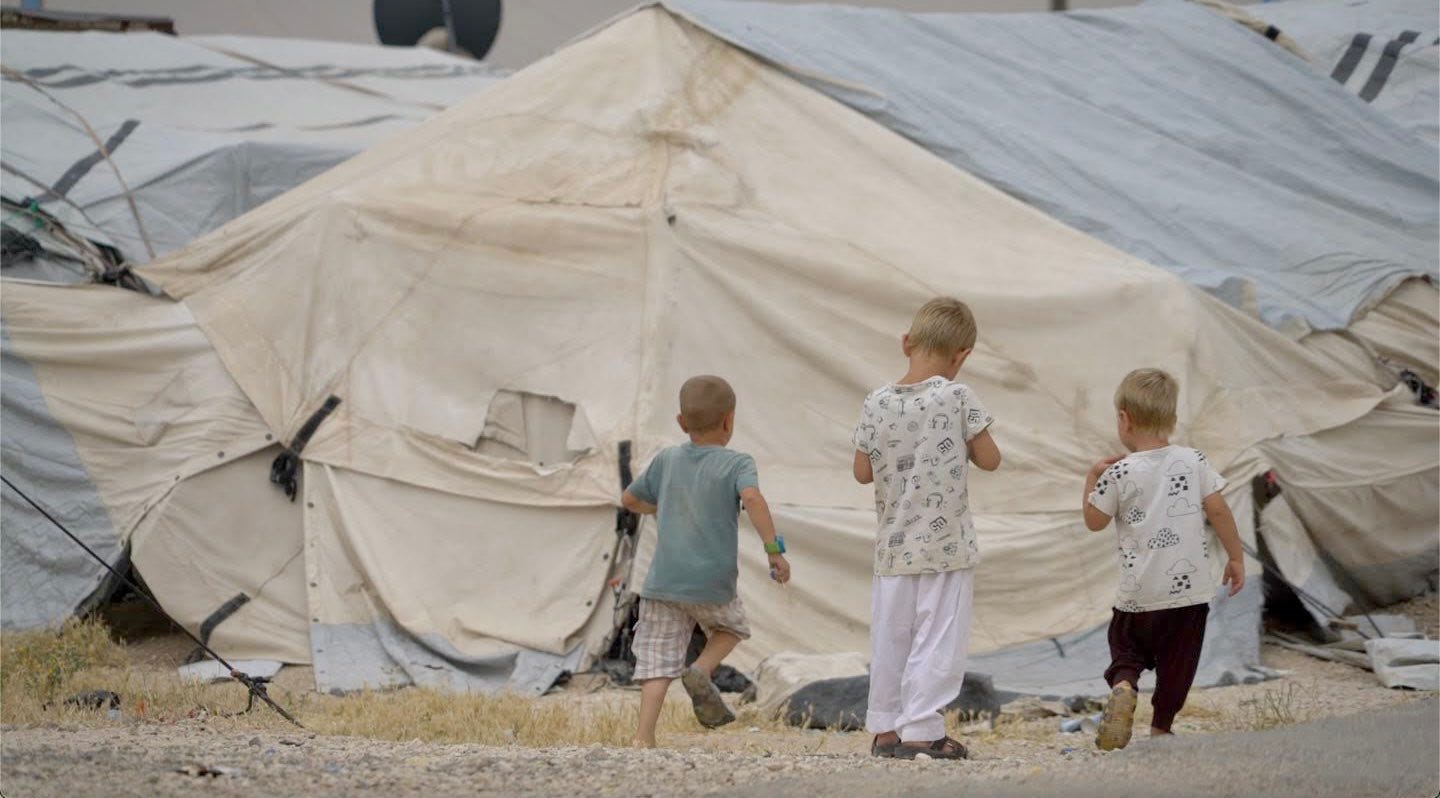Indonesia mulls repatriating kids from IS camps in Syria
Indonesia’s Foreign Terrorist Fighter Task Force says at least 145 Indonesian children - 69 boys and 76 girls - live in Syrian camps.

JAKARTA: The Indonesian government is reportedly considering plans to repatriate children from IS-linked camps in Syria.
IS’s influence is diminishing with some fighters and leaders serving sentences in prisons in Syria and Iraq, but their wives and children are still in the Al Hol and Al-Roj camps in northeastern Syria.
Leebarty Taskarina from the Enforcement Directorate of the Indonesian National Counterterrorism Agency (BNPT) said there are 58,000 women, children and family members of IS fighters and leaders living in Al-Hol camp and 2,620 people in Al-Roj camp, the VOA Indonesia news network reported.
Leebarty was speaking on the sidelines of The Habibie Center's research report launch entitled “Repatriation, Rehabilitation and Reintegration of Children Affiliated with Violent-Based Terrorism and Extremism Groups,” recently.
Leebarty said the BNPT is studying the experiences of three countries that already repatriated their citizens from refugee camps in Syria - namely Sweden, Uzbekistan and Germany. The transition of the children of IS members who were adopted by adoptive parents in Sweden and Uzbekistan did not go smoothly. In addition to being cold, these children often vent their feelings of stress by saying and acting harshly. The adoption process in Germany, meanwhile, has been slow due to the need for psychosocial support first.
Indonesia’s Foreign Terrorist Fighter Task Force confirmed that at least 145 Indonesian children live in camps in Syria. They consist of 69 boys and 76 girls.
According to the results of a closed meeting chaired by the Coordinating Minister for Political, Legal and Security Affairs Mahfud MD, those who will be repatriated are orphans and those aged up to 10 years to minimise their level of radicalisation.
Of the 145 Indonesian children in refugee camps in Syria, there are 18 boys and 13 girls who are under 10 years old.
"The problem is whether our infrastructure is really ready. Apart from infrastructure and places, are we really supported and do we have the human resources not only in numbers but with competence and qualified capabilities in the protection and handling of children," Leebarty was quoted as saying by VOA Indonesia.
A senior researcher at the Habibie Center, Sopar Peranto, explained at the same event that there were many cases where children intentionally or unintentionally carried out acts of terror or contributed to terror efforts.
"From the data we collected from 2010 to 2022, there were around 22 children who were in conflict with the law related to terrorism cases in Indonesia. We also saw around 132 children returning from Turkey, Syria or Iraq after or during the ISIS phenomenon abroad," Sopar reportedly said.
These children are known to be affiliated with Jemaah Islamiyah (JI), Jamaah Ansarut Tauhid (JAT), Jamaah Ansarud Daulah (JAD) and the East Indonesia Mujahidin (MIT).
Wachid Ridwan, Secretary of the Indonesian Ulema Council’s Countermeasures for Extremism and Terrorism, said at the same programme that children are indeed vulnerable to exposure to extremism if they are often in a radical environment.
"When we are often in a radical environment in a negative context, it will increase to extremism. With radical thoughts, it will become a pattern of extreme behaviour. When it is declared to be an act, it will become terror," said Wachid referring to children recruited by Boko Haram in Nigeria.
Meanwhile, Sopar explained how the children of terrorist parents, especially boys, often become heirs to the terrorist ideology of their parents or fathers. They learn the ideology of violence on their own by watching their parents or from social media.
In Indonesia, he added, there is already a legal instrument to deal with children affiliated with terrorist networks, namely the Child Protection Law No. 35 of 2014, which places children affiliated with terrorist organisations as victims – not as perpetrators – so that efforts to punish children associated with terror networks is the last step.
Data from the BNPT shows the number of Indonesians involved in terror networks has reached two thousand, of which a quarter – or 529 people – are still living in the Al-Hol and Al-Roj camps in Syria.
Sopar explained that there had been a discourse conveyed by President Joko Widodo regarding the repatriation of orphans and a maximum age of 10 living in two camps in Syria to be sent home. This issue needs to be discussed in more depth regarding the handling of these children later if they are returned to their homeland.
In their recommendations, the Habibie Center research team said there needs to be special regulations to deal with children affiliated with terrorist networks, reported VOA Indonesia.



